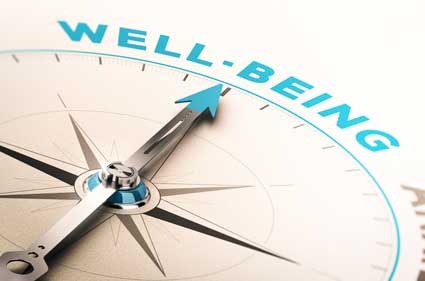Introduction
Paid employment
You must be 14 years old to work legally in most states of the U.S.. There are certain rules that apply to employment for teens. Check with the U.S. Department of Labor, and your own state's department of labor for laws governing the state you live in.
When looking for work, good places to start are in your neighborhood. If you do not drive, working close to home will be convenient for you and your parents. If you do drive, it will be easier to balance school, work, and life if you do not have a long commute. If you have volunteered in the past, a great place to find paid employment is to ask your volunteer group if there are any paid positions available. Another option is to call or visit local shops, stores, and businesses that employ teens. Ask family friends or relatives if they have work for you. Ask your friends from school if there are jobs available where they work. If you have too many commitments during the school year to work from September to June, only work in the summer, when school is out. Often, local businesses hire several local teens to work over the summer for them. Ask around and find out which businesses do so. Seasonal businesses are the best places to look for summer work; ice cream parlors, community pools, beach communities and lake communities are usually great sources.
Always be polite when asking for work, whether it is your local ice cream shop, or a large company. Be well-groomed, well spoken, and use your rules of etiquette when you meet with potential employers.
When you find a job, make sure you show up on time (or call if you are going to be late), that you do what the job requires, and that you are polite to your supervisor and customers, if you are in a service position. Always show up to work well-groomed and ready to work. Be sure to give notice when you are going to be leaving the job.
A side note about working with/for adults: Yes, you should be polite and respectful towards your supervisors, however, you should never be asked to do any work, or anything else, that makes you uncomfortable. If you are asked to do anything that makes you feel weird, or anything that seems odd or "wrong" to you, tell your parents. If a supervisor asks you to do extra work, and it does not make you feel put upon or overwhelmed to do so, then by all means, do so if it will be appreciated. However, if you are often being asked to perform work that was not described to you, and you are feeling overwhelmed by excessive work demands, talk to your parents. Don't stay at a job that you dread doing. Work will not always be fun or enjoyable -- you may have to perform some tasks you don't enjoy -- but it should not be dreadful, either.
It is always fun to work with people your own age, so if you can find a job working with peers, you should do so.
A good age to begin volunteer work is about nine or ten years, depending on your emotional maturity. Helping others is a good way to contribute to your local or broader community. It teaches responsibility, gratitude, and helps develop many important skills.
Be sure to consult with your parents when you are ready to volunteer. Let them help you find a balance between your volunteer work, schoolwork, religious responsibilities (if you attend a church regularly), your social life and family obligations. If you are under the age of 16, you should have your parents work with you to find a good volunteer fit for you, and to check out the group with you to ensure you are in a safe environment. If you are older, you may do a lot of set-up yourself, but still consult with your parents and let them know your plans and schedule.
Although, volunteer work is not a "paid" job, it is still a job in many respects. You won't be competing with others for a volunteer job; most organizations will be highly pleased to have as much help as they can get. However, you do have to show up on time, and when you say you will. You must do your job to the best of your ability. You must treat your supervisor with respect, and you should give notice when you leave.
Working volunteer or paid jobs will teach you a lot about responsibility. While etiquette on a job and with supervisors and other employees are similar, they are not exactly the same. Be polite when looking for work and remain polite after you get the job. However, never do anything that makes you uncomfortable. That is not good etiquette, that is allowing someone to take advantage of you. No job is worth that. Just because someone is your superior on a job, does not give them authority over you in all regards. Don't be afraid to stand up for yourself, or to talk to your parents if a job is becoming dreadful. The work you are doing should be mostly enjoyable and satisfying, if it is not, find something else.
Dining Etiquette
Table Manners: Basic Do's and Don'ts:
Do's
-
Do wait for everyone to be seated before you begin eating.
-
Do put your napkin on your lap before eating.
-
Do follow the customs of those you are eating with; if they pray before meals, join in or sit quietly, even if you do not do so at home, and even if you are of a different religion.
-
Do be polite if a food is being served that you do not like or cannot eat.
-
Do wipe your mouth with your napkin.
-
Do mind your p's and q's (say "no thank you" and "yes, please").
-
Do excuse yourself when leaving the table.
-
Do sit up straight when eating and bring your eating utensil to your mouth.
-
Do excuse yourself from the table if you have to burp, or cover your mouth with your napkin.
Don'ts
-
Don't chew with your mouth open.
-
Don't talk with your mouth full of food.
-
Don't wipe your mouth with your hand or sleeve.
-
Don't make negative remarks about food that is being served.
-
Don't grab at serving dishes.
-
Don't reach across someone for a serving dish of food.
-
Don't scrape your teeth on your eating utensil.
-
Don't slurp, burp, or slouch at the dinner table.
-
Don't lick your fork, knife, or spoon.
Depending on where you are eating, you may be using cloth or paper napkins. Cloth napkins should be opened and placed on your lap before you begin eating. Paper napkins should also be opened and placed on your lap, or opened and placed next to your plate before eating.
Formal dining may contain a lot of elements, if there many courses being served: six to seven forks, two spoons, four to five knives and as many as five glasses may be used for a very formal setting. Settings of this size are beyond the depth of this article; however, you can ask for your parents' assistance before attending a dinner this formal.
Basic silverware settings are as follows: fork(s) on the left hand side and the spoon(s) and knife(s) on the right. A standard setting is fork left, knife and spoon right. If there is more than one fork, use them from smallest to largest. For instance, if there are three forks, use the smallest for the first course (appetizer) the next largest fork for the second course, (salad) and the largest for the entr�e or main meal. If there will be a seafood appetizer, a very small fork will be placed to the right, next to the knife or soup spoon. Soup spoons are always the largest spoon in a setting. Coffee/tea/desert spoons are the smallest. If in doubt, pause before picking up your utensil so you can watch what other people at the table are using for that course.
Be careful with fine china and crystal. Don't slam your glass down too hard, and don't slam your utensils onto your plate. Most china and crystal are sturdier than they look, so don't be too worried about breaking them. If an accident does happen, just apologize sincerely, and chalk it up to experience.
Being Served and Serving Yourself
When being served, lean back to allow the server to place the food in front of you. If you are leaning into the table, he or she will not be able to place the dish down or portion your food onto the plate. When eating an informal meal at home or someone else's home, do not reach and grab for serving dishes. Ask the person sitting closest to the dish to pass the item to you. Do not take the last of a food item from a serving dish unless you ask if anyone else would like to have it. Don't load your plate to overflowing, you can always get seconds if you are still hungry.
Allergies and Food Dislikes































